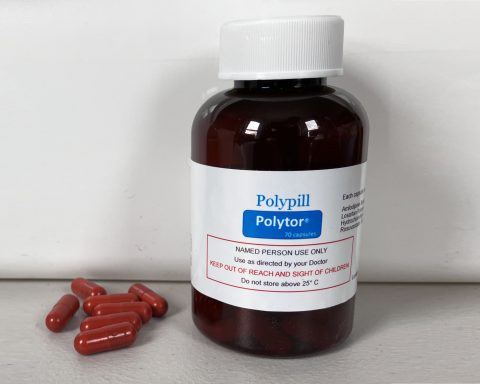
Truss. ‘I know that word from somewhere’, I thought to myself. In the recesses of my mind, where the nuggets of information from medical school live, a light bulb turned on.
Inguinal hernias: ‘A hernia truss or belt is a supportive undergarment for men designed to keep the protruding tissue in place and relieve discomfort. If you have an inguinal hernia, a hernia truss can help you feel more comfortable temporarily, but it doesn’t treat the hernia’.1 ‘Papering over the cracks’ comes to mind.
This got me thinking about whether papering over the cracks is sometimes permissible or ‘good enough’; particularly where resources are limited to enact change. Surely the acknowledgement of cracks, deficiencies, or shortcomings is the start of the process of progress?
“Tiptoeing, side-stepping, dodging … all terms perhaps, fairly or unfairly, associated with politicians.”
Personally, I feel that the recent publication of the House of Commons Health and Social Care Committee’s report entitled The Future of General Practice hits the nail on the head.2 The voices of those currently working in primary care are reflected throughout the document, which gives a sense of validation to the content. It does not tiptoe around the fact that the profession is in crisis. Tiptoeing, side-stepping, dodging … all terms perhaps, fairly or unfairly, associated with politicians.
I would not consider myself a political person, whatever that means in this day and age. I do consider myself a staunch NHS supporter. I am a clinician on the frontline of this institution, and I have a chronic illness that is managed by NHS clinicians so have absolutely experienced its benefits. Of course, though, there are times that I have been left wanting, be it as a patient unable to access the care I need, or as a GP struggling to ward off burnout within an overrun system.
I am yet to see whether this strategy of mine wards off the dreaded burnout, but I try to concentrate solely on the patient in front of me and the colleagues around me. Essentially, on my clinical days, I focus on the micro-level of health care. Thinking about the macro-level of things, including the politics of it all, tends to send my heart rate up when I am in the thick of clinical practice.
“One single person surely cannot possibly be expected to solve the problems of a nation.”
Am I burying my head in the sand? Or do I need this ignorance to survive? Day to day, it feels that there is a choice between saving my energy for my patients or spending it on engaging with the obstacles, dead ends, and brick walls I often encounter at work, largely due to bureaucracy and ‘computer says no’. During my academic working days, I feel safe enough to broach the macro-level. Perhaps stepping back periodically from the frontline gives me the energy to do so.
‘Part-time’ or portfolio GPs are often viewed negatively by experienced GPs nearing retirement. The negative connotation of ‘part-time’ is something that has to be addressed. Professionals and the public alike need to be educated. Secondary care consultants do not see patients in clinic for ten sessions a week; their days are structured according to the varied aspects of their job, with meetings, ward rounds, and procedural lists, for example. So, why then are GPs expected to consult patients ‘full-time’? The non-patient-facing components of our workload that are seemingly ‘hidden’ are just as much a part of our role as welcoming a patient into our consulting room. As Nada Khan recently wrote, ‘we cannot define 40% of our work as ‘hidden’ – it is an essential part of the job’.3
Back to Truss. This time, Liz Truss. Our previous Prime Minister. I don’t profess to understand the ins and outs of her time in office. As I said, I tend to try to focus on my job in hand. But I can’t help but reflect on the fact that she is but one person. One single person surely cannot possibly be expected to solve the problems of a nation. We as clinicians know all too well the benefit of multidisciplinary team working. Communication and information-sharing is key. I’m not sure where the energy is with which we must improve this, but somehow, it seems like the only way forward.
References
1. Pearson DG. Can a hernia truss help an inguinal hernia? 2021. https://www.mayoclinic.org/diseases-conditions/inguinal-hernia/expert-answers/hernia-truss/faq-20058111 (accessed 11 Nov 2022).
2. House of Commons Health and Social Care Committee. The future of general practice. Fourth report of session 2022-23. 2022. https://committees.parliament.uk/publications/30383/documents/176291/default (accessed 11 Nov 2022).
3. Khan N. ‘Hidden no more – the real work of the ‘part-time’ GPs working full-time hours. BJGP Life 2022; 27 Oct: https://bjgplife.com/hidden-no-more-the-real-work-of-the-part-time-gps-working-full-time-hours (accessed 11 Nov 2022).
Featured photo by Johnny Cohen on Unsplash.








